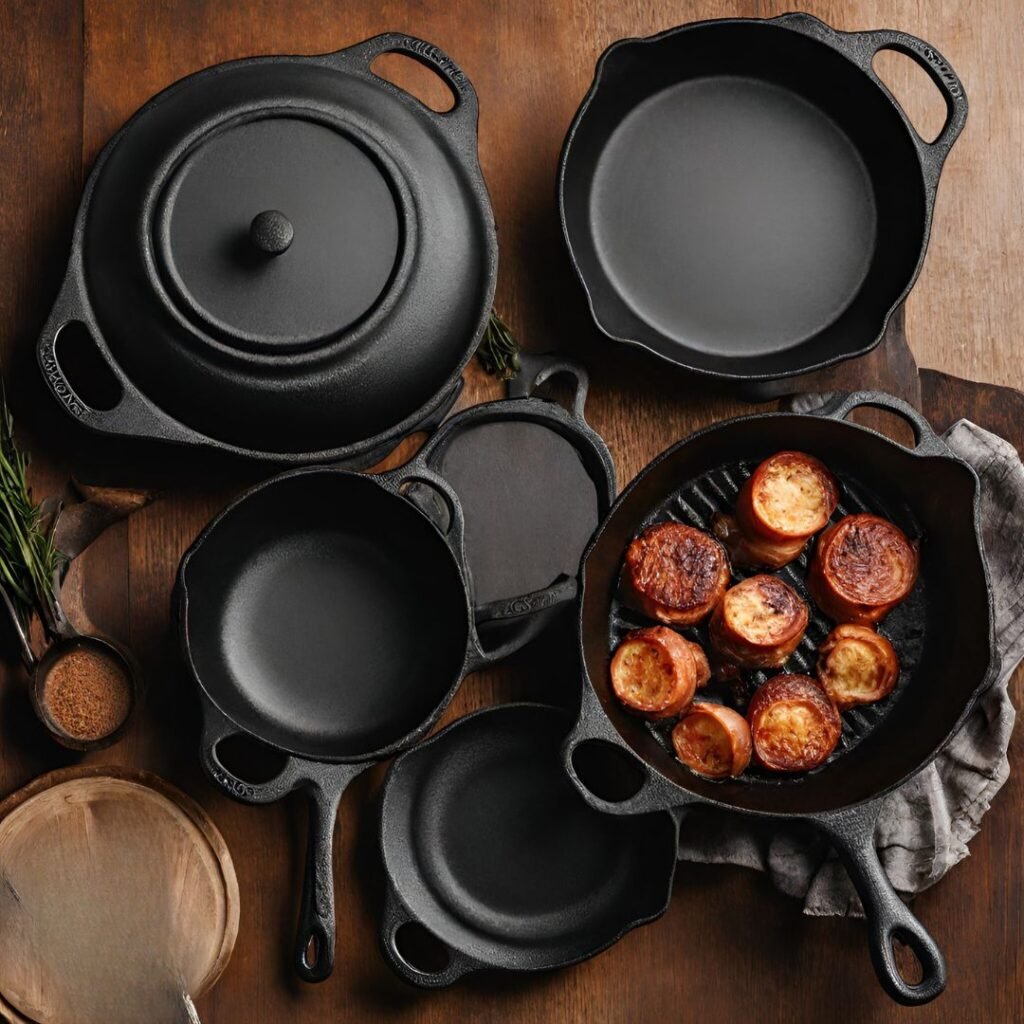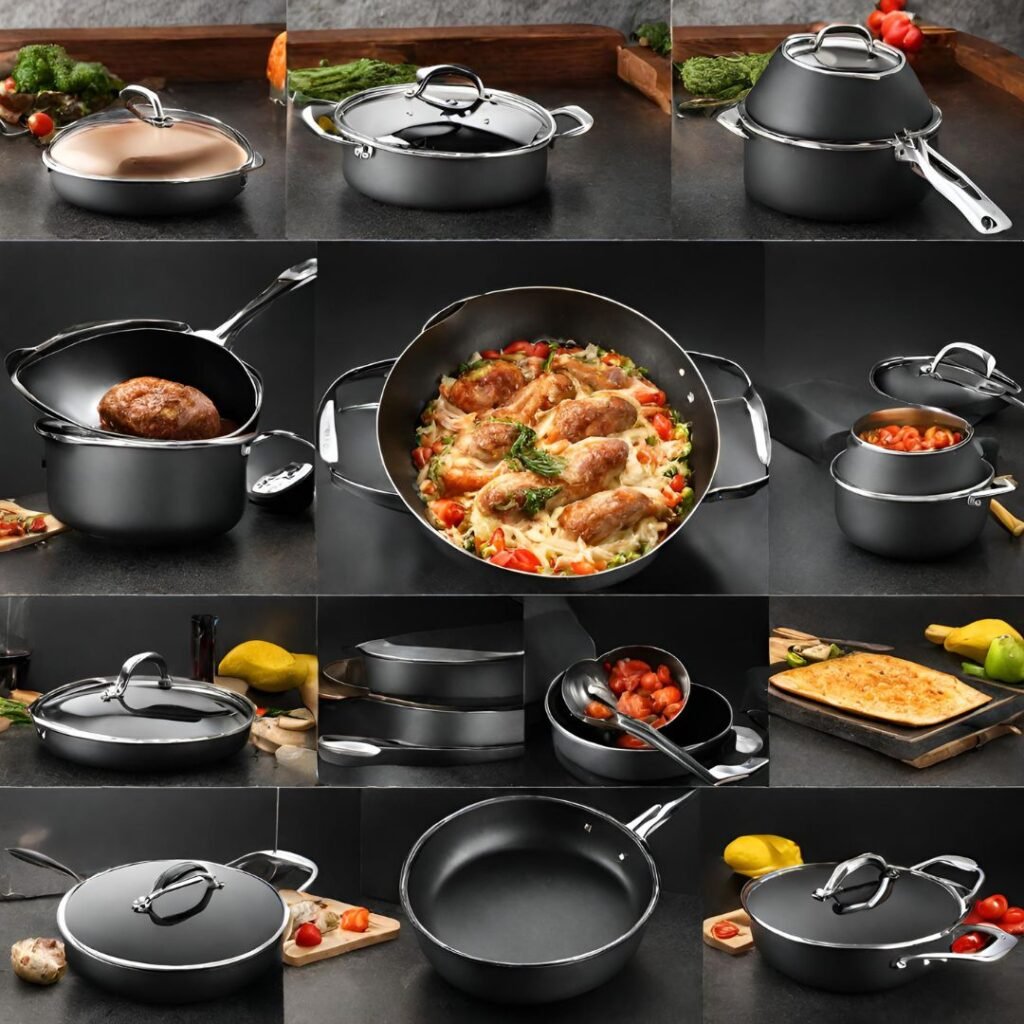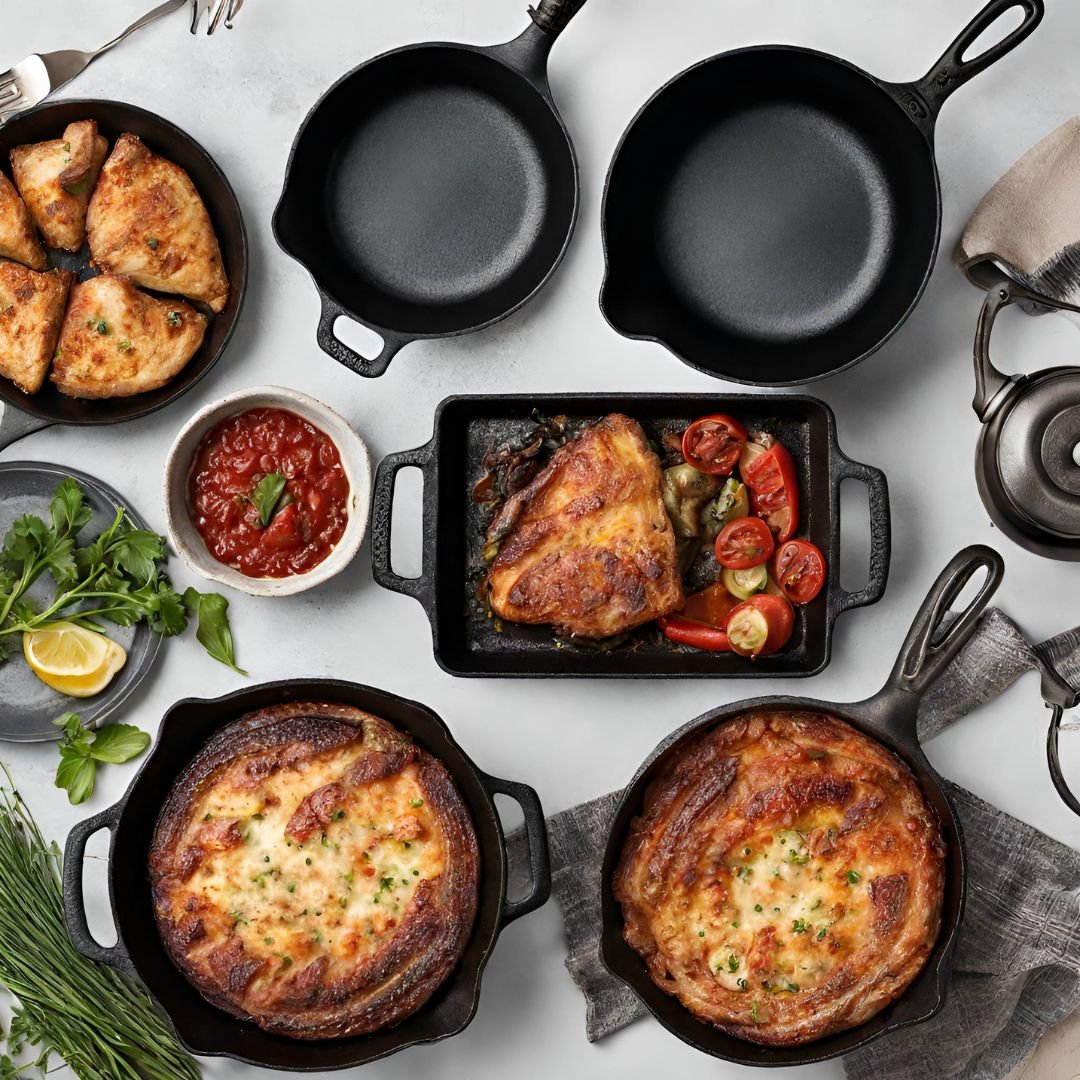Table of Contents
I. Introduction
In the realm of culinary tools, cast iron cookware stands out as a timeless classic, revered for its exceptional durability, heat retention, and ability to enhance the flavor of food. While its popularity is undeniable, cast iron cookware is not without its drawbacks. Understanding these limitations is crucial for making informed decisions about cookware choices.
II. Cast Iron Cookware Advantages
Before delving into the disadvantages, it’s important to acknowledge the undeniable benefits of cast iron cookware:
Durability:
Cast iron is renowned for its exceptional resilience, capable of withstanding years of rigorous use without warping or cracking. This makes it a cost-effective investment that can be passed down through generations.
Heat Retention:
Cast iron excels at evenly distributing and retaining heat, ensuring consistent cooking and promoting caramelization for flavorful dishes. This property is particularly beneficial for searing meats, baking bread, and slow-cooking stews.
Versatility:
Cast iron cookware is a versatile tool, capable of handling a wide range of cooking methods, from searing and sautéing to baking and braising. Its adaptability makes it a valuable addition to any kitchen.
Flavor Enhancement:
Cast iron cookware is known to impart subtle flavors to food, adding a unique depth and richness to dishes. This characteristic is particularly noticeable when cooking meats and vegetables.
Read also :CAN I USE OLIVE OIL TO SEASON CAST IRON?
III. Disadvantages of Cast Iron Cookware

Despite its many advantages, cast iron cookware is not without its drawbacks:
A. Seasoning and Maintenance:
Cast iron cookware requires a process called seasoning to create a protective layer that prevents rust and promotes a non-stick surface. This seasoning process can be time-consuming and requires regular maintenance.
B. Weight and Handling:
Cast iron cookware is significantly heavier than other types of cookware, making it more difficult to handle and maneuver. This can be a strain on wrists and arms, especially for individuals with limited mobility.
C. Reactivity with Certain Foods:
Cast iron cookware can react with acidic or alkaline foods, causing discoloration and affecting the taste of the food. For highly acidic dishes, it is recommended to use alternative cookware materials.
D. Slow Heating and Cooling:
Cast iron cookware takes longer to heat up and cool down compared to other materials. This can impact cooking times and require more precise temperature control.
E. Non-Stick Properties:
Cast iron cookware is not inherently non-stick. Achieving a non-stick surface requires proper seasoning and maintenance, and even then, it may not be as effective as modern non-stick coatings.
IV. Cast Iron Skillet Cancer Concerns
A common concern regarding cast iron cookware is the potential risk of cancer associated with iron leaching into food. While it is true that cast iron can release small amounts of iron, scientific studies have shown that these levels are generally within safe limits and pose no significant health risks.
V. FAQs
To address common questions and concerns, here’s a compilation of frequently asked questions related to the disadvantages of cast iron cookware:
1. Can I use cast iron cookware in the dishwasher?
No, cast iron cookware is not dishwasher-safe. Harsh detergents and high heat in dishwashers can damage the seasoning and promote rust. Handwashing with warm, soapy water is recommended.
2. How often should I season my cast iron cookware?
The frequency of seasoning depends on how often you use your cast iron cookware. With regular use, you may only need to re-season once or twice a year. However, if you use your cast iron less frequently or if you notice that the seasoning is starting to wear off, you may need to re-season more often.
3. What kind of oil should I use to season cast iron cookware?
High-smoke point oils are recommended for seasoning cast iron cookware. Common choices include vegetable shortening, canola oil, flaxseed oil, and olive oil.
4. Can I use cast iron cookware for acidic foods?
While cast iron cookware can be used for some acidic dishes, it is best to avoid highly acidic foods like tomatoes, citrus fruits, and vinegar. These foods can react with the iron in cast iron, causing discoloration and affecting the taste of the food.
5. How do I clean cast iron cookware?
Handwashing with warm, soapy water is the best way to clean cast iron cookware. Avoid using harsh detergents or abrasive scouring pads, as these can damage the seasoning.
VI. Is Cast Iron Good for Health?
Cast iron cookware can be a healthy choice for cooking, as it does not leach harmful chemicals into food like some non-stick cookware can. Additionally, cast iron can add small amounts of iron to food, which can be beneficial for people who are iron deficient. However, it is important to note that excessive iron intake can be harmful, especially for people with certain health conditions, such as hemochromatosis.
VII. How to Season Cast Iron Cookware
Seasoning cast iron cookware is a crucial step in its maintenance and prevents rust. Here’s a step-by-step guide:
- Wash and dry the cast iron thoroughly.
- Apply a thin layer of oil to all surfaces of the cast iron, including the interior, exterior, and handle.
- Preheat the oven to 350-400°F (175-200°C).
- Place the cast iron upside down on a baking rack in the preheated oven.
- Bake for one hour.
- Turn off the oven and let the cast iron cool completely inside.
- Repeat steps 2 to 6 two to three more times to build up a strong seasoning layer.
VIII. Is Cast Iron Non-Stick?
Cast iron cookware is not inherently non-stick. A true non-stick surface, such as those found on modern non-stick cookware, is designed to release food effortlessly with minimal sticking. While cast iron can achieve a non-stick surface with proper seasoning, it may not be as effective as modern non-stick coatings, especially for delicate foods like eggs and fish.
IX. Is Cast Iron Non-Stick Safe?
Traditional cast iron cookware is generally considered safe, as it does not contain harmful chemicals or coatings. However, some modern cast iron cookware may feature non-stick coatings that contain potentially harmful chemicals like PFOA and PFAS. It is important to choose cast iron cookware that is free of these chemicals or opt for traditional uncoated cast iron.
X. Cast Iron vs. Non-Stick Cookware

Cast iron cookware and non-stick cookware offer distinct advantages and disadvantages:
Cast Iron:
Advantages:
- Durable and long-lasting
- Excellent heat retention and even cooking
- Enhances flavor of food
- Seasoning creates a natural non-stick surface
Disadvantages:
- Requires seasoning and maintenance
- Heavy and difficult to handle
- Can react with acidic foods
- Slow heating and cooling
Non-Stick:
Advantages:
- Easy to clean and food releases effortlessly
- Lighter and more manageable
- Suitable for delicate foods
Disadvantages:
- May contain harmful chemicals
- Can scratch and lose non-stick properties over time
XI. Conclusion
Cast iron cookware remains a popular choice for its durability, heat retention, and ability to enhance the flavor of food. While it has its drawbacks, such as the need for seasoning and maintenance, cast iron can be a rewarding addition to any kitchen with proper care. Understanding the limitations of cast iron allows for informed decisions about cookware choices and ensures that you make the best use of your culinary tools.
Healthline – Cast Iron Cookware: What You Need to Know
Cooking Light – Cooking with Cast Iron: What You Should Know
